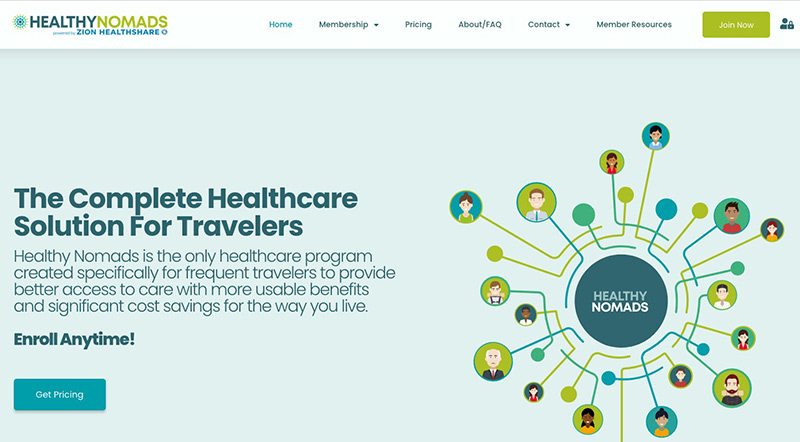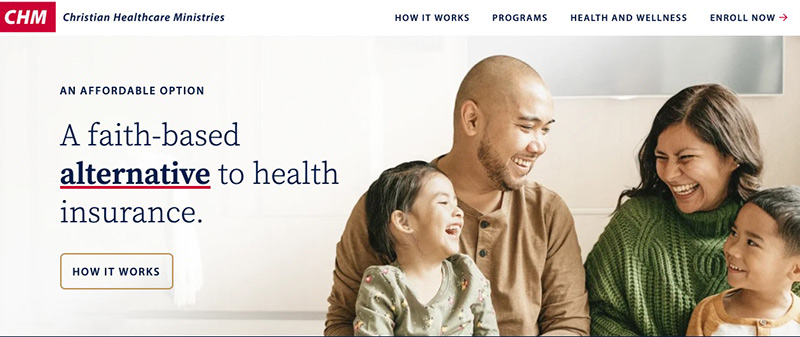Whether retired, traveling solo or RVing with small children, the thought of not being able to get good healthcare on the road is one of the biggest deterrents holding people back from pursuing their travel dreams. Fortunately, there are more options today than ever before. So, don’t let fear of not being able to find affordable care hold you back.

by Greg Gerber
One of the biggest challenges is finding clinics and doctors “within the network” of existing insurance policies. Out-of-network options are often ghastly expensive, and it’s super inconvenient to rush home every time you want to visit your doctor.
So, it’s important that Workampers have access to affordable medical services everywhere they go without having to worry about breaking the bank.
Pay Cash
When I was a full-time RVer for three years, I discovered clinics and doctors were often very willing to provide care at discounted rates for customers who pay cash or charge the visit to a credit card. It’s a win-win for everyone.
Doctors avoid the hassle of filling out endless forms and waiting weeks to get reimbursed by an insurance company. Patients get the same high level of care while saving money, and can even earn rewards by charging a visit to their credit card.
Urgent care centers have sprung up in many bigger cities, and some pharmacies have mini-clinics staffed by nurse practitioners who can treat routine illnesses and prescribe medications. Hint: Call first before visiting any urgent care center. If the staff can’t tell you in advance what it will cost to get service, then avoid it like the plague so you aren’t shocked by a bill for hundreds of dollars.
Yet, it’s the big illnesses or unforeseen accidents which can cause real financial problems. That’s why it’s a good idea to have some type of protection against major medical expenses.
The federal government waded into the healthcare arena in 2010 by passing the “Affordable Care Act.” Although it made insurance coverage available to some people who did not have it in the past, it turned out to be a bureaucratic boondoggle that rendered healthcare anything but affordable.
For me, buying insurance through the program would have cost more than $1,000 in monthly premiums back in 2014. Yet, coverage really didn’t kick in until I paid $13,000 annually in deductibles and co-pays (GULP). I considered myself very fortunate to have discovered a truly affordable alternative.
Here are some of the more popular options.
Healthy Nomads
This program was designed by Kyle Henson, a full-time RVer who truly understands what RVers need when traveling from place to place.
It is not insurance. Rather it is a membership organization which offers significant savings compared to traditional insurance programs. Typically, a single person pays $289 per month, while it would cost $519 for a member and spouse, or member and children; or $719 to include everyone in the family.

Service is offered in one of three ways:
- Medical cost sharing – If a member incurs a major medical expense from an illness or injury, then costs are shared from money collected through monthly fees. There is an annual unshareable amount ranging between $1,000 and $5,000, based on the plan. Members must pay that before submitting the balance of costs to the trust for reimbursement. However, most other expenses are eligible for reimbursement.
- Virtual primary care – Most healthcare services that were once provided at a doctor’s office can now be provided over the phone or via computer. With Healthy Nomads, members use an online app to connect with a primary care doctor who is familiar with their health history. There is even an urgent care component for issues that can’t wait a day or two until an appointment opens with a patient’s primary care doctor.
- Essential savings – This package gives members 12 different types of discounts on a variety of medical services. It includes things like dental care, vision and hearing, alternative medicine, prescription drugs, lab testing, MRIs, counseling services and others.
Healthy Nomads was developed in cooperation with Zion HealthShare, a nonprofit organization based in Utah and governed by a board of directors.
Membership costs are even lower for younger people and for folks who opt for a larger initial unshareable amount. There is a one-time enrollment fee, and smokers pay an extra $50 per month for membership.
Kyle is happy to talk to RVers by phone or during an online meeting to outline available options and their related costs. To set up the free one-hour consultation, call 302-943-0318, email [email protected], or visit www.healthynomads.org.
Christian Healthcare Ministries
While Healthy Nomads has no faith component, Christian Healthcare Ministries does, and it expects members to live a Christian lifestyle and abide by a statement of beliefs. The Ohio-based organization has taken care of 100% of members’ eligible medical bills since 1981.

The program is designed to ease the burden of catastrophic medical expenses. It also offers bill-sharing services for which no contract is required. Members can select from one of three levels with payments made per month, per person, which the organization calls “units.” However, no family pays for more than three units per month, regardless of the number of dependent children. The levels are:
- Bronze is $92 per month, per unit, but the minimum expense to qualify for sharing must total at least $5,000 per incident or illness.
- Silver costs $138 per unit, but the minimum amount to qualify for sharing is $2,500.
- Gold is $240 monthly per unit with minimum expense for sharing set at $1,000. However, the plan also covers maternity costs, physical therapy, home healthcare and incident-related prescriptions.
Regardless of the plan, the program helps pay for costs associated with an illness or incident, such as doctor visits, tests, x-rays, ambulance, hospital admission, surgery, etc. All expenses above the minimum qualifying limit for a particular level can be shared up to a total of $125,000 per incident.
However, for an additional $27 per month, per unit, members can use CHM Plus to eliminate the $125,000 limit so all expenses can be shared regardless of total cost.
Christian Healthcare Ministries also adopted a telehealth option providing 24/7 access to licensed physicians via the telephone or a video chat. Members can benefit from the Bring-a-Friend feature, which offers financial rewards for referring others to the organization.
This program reimbursed me 100% of medical costs associated with a mini-stroke in 2018.
For more information, visit www.chministries.org.
Medicare Supplemental Insurance
People who are covered by Medicare – usually retirees over age 65 who collect Social Security – can get coverage under original Medicare or Medicare Advantage. Either way, enrollees have the ability to seek care from any Medicare-participating doctor, clinic or hospital.
There are four parts of coverage for Medicare:
- Part A covers inpatient hospital stays as well as nursing homes and hospice care.
- Part B covers outpatient medical care from doctors and clinics, plus medical supplies and some preventive services.
- Part C, which is also called Medicare Advantage, covers Medicare A and B plus many add-on costs, like prescriptions, dental, vision, hearing and mental health services. Some plans include fitness programs, too.
- Part D covers the cost for prescription drugs.
With Medicare, there is no limit to what participants pay out-of-pocket each year, unless they have some type of supplemental coverage like Medicaid or Medigap. Nor does the original plan cover prescription drugs.
Another option is Medicare Advantage. These private insurance plans contract with the government to provide Medicare A and B coverage as well as additional benefits. Historically, these plans were not a good fit for RVers due to their local HMO network requirements. But, today there are several plans affiliated with nationwide networks. Some plans don’t even have a monthly premium.
Medical savings accounts can also be set up under Medicare Advantage. Those accounts provide some cost benefits by setting aside money annually or every month, and then allocating those funds exclusively for healthcare needs.
Other Options
There was a discussion on Facebook recently regarding healthcare options for RVers. More than 150 people chimed in with their recommendations for obtaining affordable care.
While many people claimed they didn’t need to worry about healthcare because they somehow “avoided accidents,” lived a healthy lifestyle, and simply paid for medical services in cash, here are some of the suggestions:
- Cary suggested people go to Mexico, where service is provided faster at less cost.
- As a retired military member, Brian uses TriCare.
- Michael recommended Liberty Health Share and Medi-Share as faith-based options.
- Neal suggested OneShare Health as another faith-based option.
- Laine recommended Care Credit, which is a private health and wellness credit card with flexible payment options.
- A number of people praised the Health Insurance Marketplace, which provides plans under the Affordable Care Act at www.healthcare.gov.
Don’t let concerns about finding affordable health care steal your dream of enjoying the RVing and Workamping lifestyle. There are lots of options available today.
Thanks for reading the Gone Workamping blog from Workamper News. Join Workamper.com today to see all the new job opportunities for RVers, as well as the training and resources to confidently find the right Workamping job for you – easily and securely.






